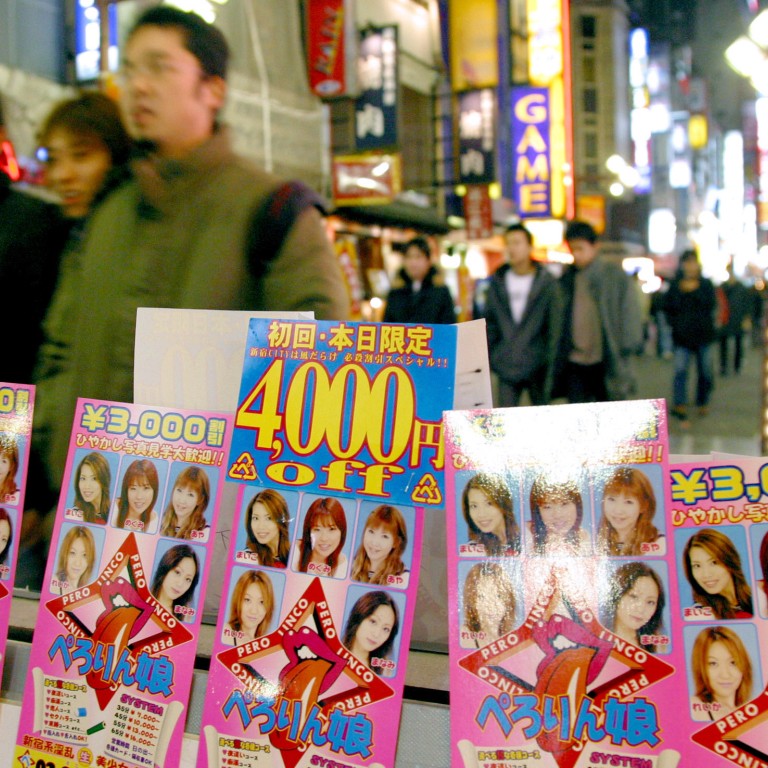
Campaigner draws on experience to help children lured into Japan sex industry
Just as she did as a teenager, Yumeno Nito still walks the streets of Tokyo’s most notorious red light districts. Today, however, she is trying to help the children who are being insidiously groomed to meet Japan’s apparently bottomless demand for sex.
Alarmingly, Nito believes that society in Japan is becoming ever-more tolerant towards juveniles in the sex industry while the media treats the latest trends as entertainment.
And those attitudes have convinced a new generation of children, primarily girls and often as young as 13 or 14, to sign up with companies with “cute” websites and offers of well-paid work that is little more than a constant party.
“Japan is not an advanced nation when it comes to our understanding of the problem of child prostitution,” said Nito, who was herself on the fringes of the industry when she worked in a “maid café” in the Shibuya district of Tokyo.
“In Japan, the ‘joshi kosei’ business is looked at as trendy or a form of entertainment,” said Nito, using a term that literally translates as high school girl but has a much darker implied meaning.
“The sense in society here is that it is the girl who is in the business who is bad, that it is her parents who have failed and there is no blame attached to the person who ‘buys’ the girl,” she said.

Nito knows just how dangerous the streets of Japan’s cities can be for thousands of young and inexperienced boys and girls. She came very close to falling into the same trap.
From a troubled home, she dressed up in a revealing uniform to work in a maid cafe. Many of the girls she worked with were in a similar situation, but were lured further into the sex industry after being befriended by pimps who cleverly offered to listen to their problems, bought them clothes or meals and even gave runaways a place to stay for a night or two.
A chance meeting with a pastor made her realise the danger that she was in and Nito admits she would almost certainly have been in the sex industry had she not met Toshifumi Aso.
With Aso’s help, she eventually got a place at university and later set up Colabo, a support centre where schoolgirls can visit to speak with a counsellor, get a meal and advice and stay the night in safety.
Several evenings every week, she walks around Tokyo’s red light districts talking to young girls, handing out fliers with details of her organisation and urging them to call her if they ever need assistance.
There are no government statistics on the girls that are employed in the JK business, but Nito estimates there are 5,000 in Tokyo alone and she gets calls from youngsters the length and breadth of the country. In 2014, she spoke to 84 girls who were victims of human trafficking, 58 who were employed by JK businesses and 23 who were involved in prostitution.
“Most of these girls are easy prey for the pimps,” she admits. “Some have mental disabilities, others have issues involving low self-esteem, others are self-abusing or have attempted suicide.”
Around one-third are simply from very poor homes and tell stories of having to take a part-time JK job just to buy their school lunch; a similar proportion come from broken homes or have been abused. Even more worryingly, Nito says, are the one-third who come from apparently good homes but are tricked into the business by replying to job offers on social media sites that sound completely legitimate.
“These are the children who are trusting of adults and do not understand the harsh realities of life,” Nito says.

